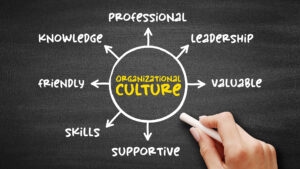Ensuring individuals choose the right executive coach is important not only for their personal development but the overall growth of their organizations. The higher the scope of responsibilities, the greater the risk to the organization.
Effective executives have certain traits, such as sound judgement, smart decision-making, and taking action when required. Additionally, they must adopt different leadership styles based on the people and situations. Most importantly, executives must align their teams and work to the organizational culture, goals, and strategies.
An effective executive coaching program led by an experienced coach can mitigate the inherent risks. They accurately assess the participants’ strengths and weaknesses and develop a plan to encompass a wide range of leadership qualities. Executive coaches are unbiased and offer fresh external perspectives to enhance strategic thinking and productivity.
Choosing the inappropriate not only results in a waste of effort, money, and time but may also lead to poor operational outcomes. Here are three common mistakes that individuals make while choosing an executive coach:
Mistake 1: Confusion between competency and savviness
Being focused only on the certification of the coach is an error. While it is essential that executive coaches have the appropriate training, other aspects are equally important. The selected coach must know how to ensure effectiveness while working with clients, draw the necessary boundaries, leave personal aspects out of their discussions, and the professional ethics. Individuals must be aware that experienced coaches without certification may have the same level of efficiency as certified coaches.
However, competency does not necessarily translate to business savviness. It may not provide the executive coach with business experience. C-suite executives require business leadership coaching programs led by coaches with a robust understanding of business realities and diverse experience. An executive coach with an astute business background is valuable for the growth of the participants and their organizations.
While selecting a coach, individuals must ensure their background prior to coaching will help increase the effectiveness of the coaching program.
Mistake 2: Confusion between industry experience and business usefulness
Often, executives choose coaches who have exposure within their industries. While industry experience can be beneficial, there are a couple of other factors individuals must consider while selecting an executive coach.
Firstly, the primary objective of an executive leadership coaching program is developing leadership abilities and competencies and not only strategic development. Helping the C-suite executives to develop strategic thinking is not to be confused with helping them to develop business strategies. Experience in specific industries is not critical for enhancing their effectiveness as leaders.
Secondly, some of the best ideas and insights are from other industries. Experience of several years in the same industry may result in group thinking, which often leads to incremental improvements only. In comparison, a different and fresh perspective leading to innovation and significant change can come when the coach is from outside the industry.
Varied industry experience is an important factor that affects the effectiveness and usefulness of coaching. It is recommended to select a coach with a varied industry background.
Mistake 3: Confusion between logic and chemistry
Checking coaching competency, experience, and business background while selecting an executive coach is important. However, restricting the selection based only on their “resumes” may be a huge mistake. Irrespective of how efficient the coach is and how good the participants are, a lack of chemistry between them may provide less than satisfactory outcomes.
There is an effective way to determine if there is any chemistry between the coach and the executive. The most efficient way is to schedule a conversation (either in person or on the phone) between the coach and the executive. This allows the coach and the executive to decide if they are a good fit.
The executive can use this discussion to understand if the coach can help them achieve their goals and reach their development objectives. On the other hand, the coach can determine if the prospective clients are ready for coaching and clearly know what is expected during the process.
Hiring an executive coach can be an amazing experience and a valuable investment for personal and organizational growth. Avoiding these common mistakes and taking the time to select the right coach can transform an individual’s life and result in a productive and positive experience.





